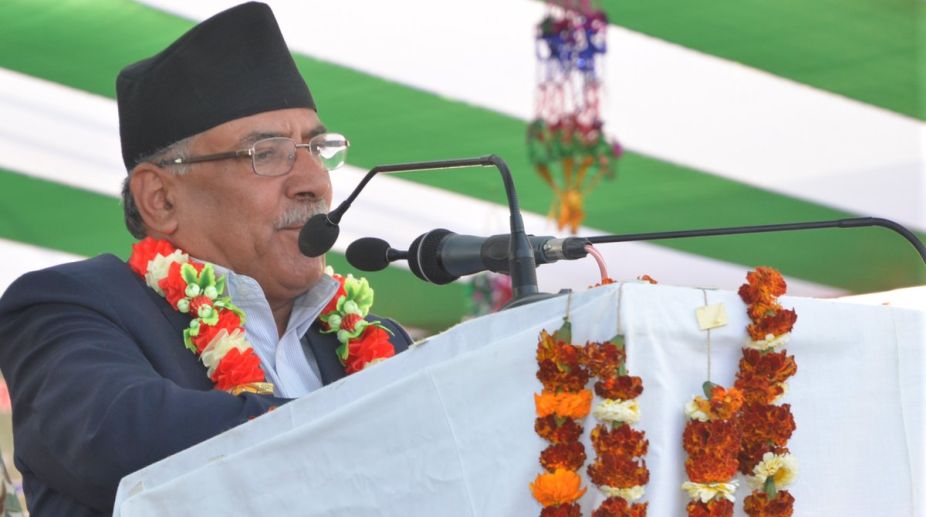Nepal Prime Minister Prachanda on Wednesday stepped down to pave way for Nepali Congress chief Sher Bahadur Deuba to take over as per an understanding the two leaders had reached in August last year.
The announcement came as the prime minister addressed the nation from his office in Singhadurbar on Tuesday evening.
Advertisement
Prachanda was to address the parliament on Tuesday and announce his resignation, but it was postponed as the speaker adjourned the House after the main opposition CPN-UML's lawmakers obstructed the House meeting, protesting against the government's decision to increase the number of local units in Tarai districts.
As leaders from ruling and opposition parties could not develop a consensus on resuming House meeting despite holding several rounds of talks, the speaker postponed the parliament meeting.
As per an understanding reached between ruling parties — Nepali Congress and CPN (Maoist Centre) — Prachanda was supposed to quit the top post, paving the way for NC President to lead the coalition government.
The pact was to run the government on a rotational basis until elections to the parliament are held in February 2018.
Prachanda was to hold office till local polls are held and remaining two elections provincial and central – were to be conducted under Deuba.
Millions of Nepalese on May 14 voted in the country's first local-level polls in two decades as the Himalayan nation took a crucial step towards cementing democracy amid political turmoil.
Local-level elections could not be held after 1997 largely as a result of the decade-long Maoist insurgency that claimed more than 16,000 lives in Nepal.
The elections should be held in every five years but due to the political instability, they were halted since May 1997.











